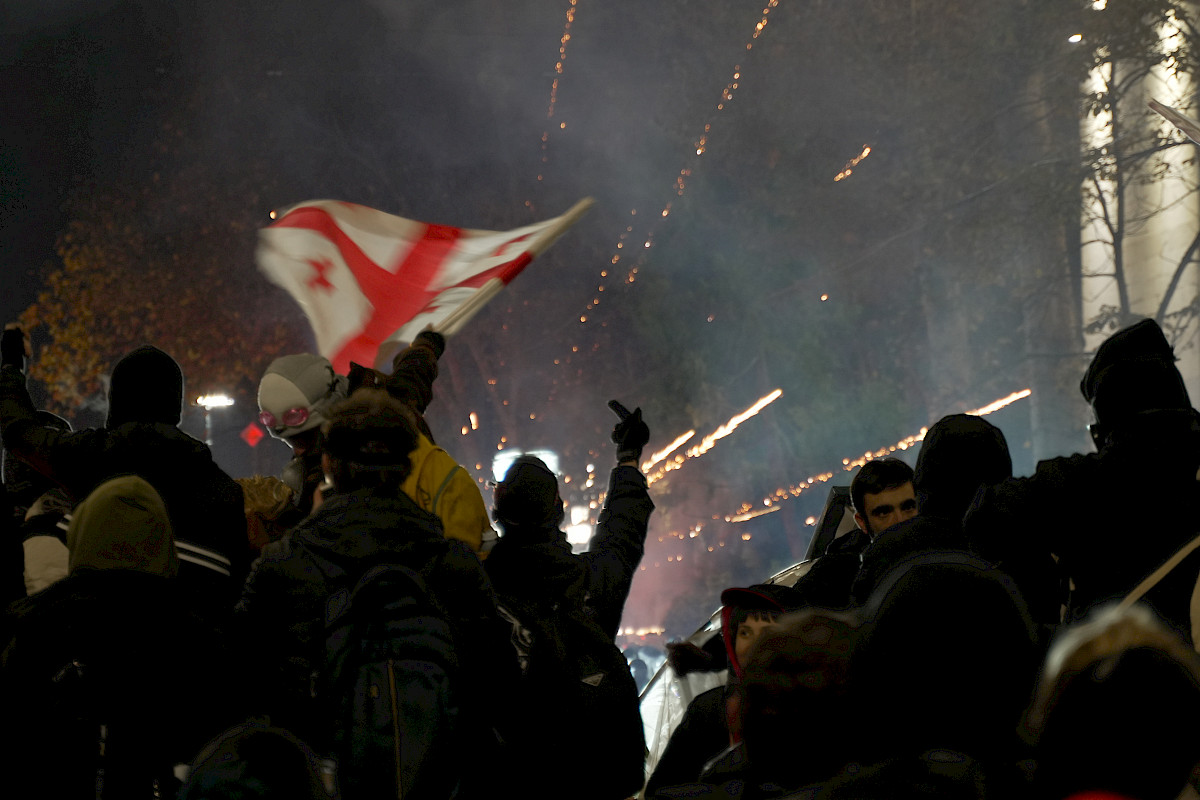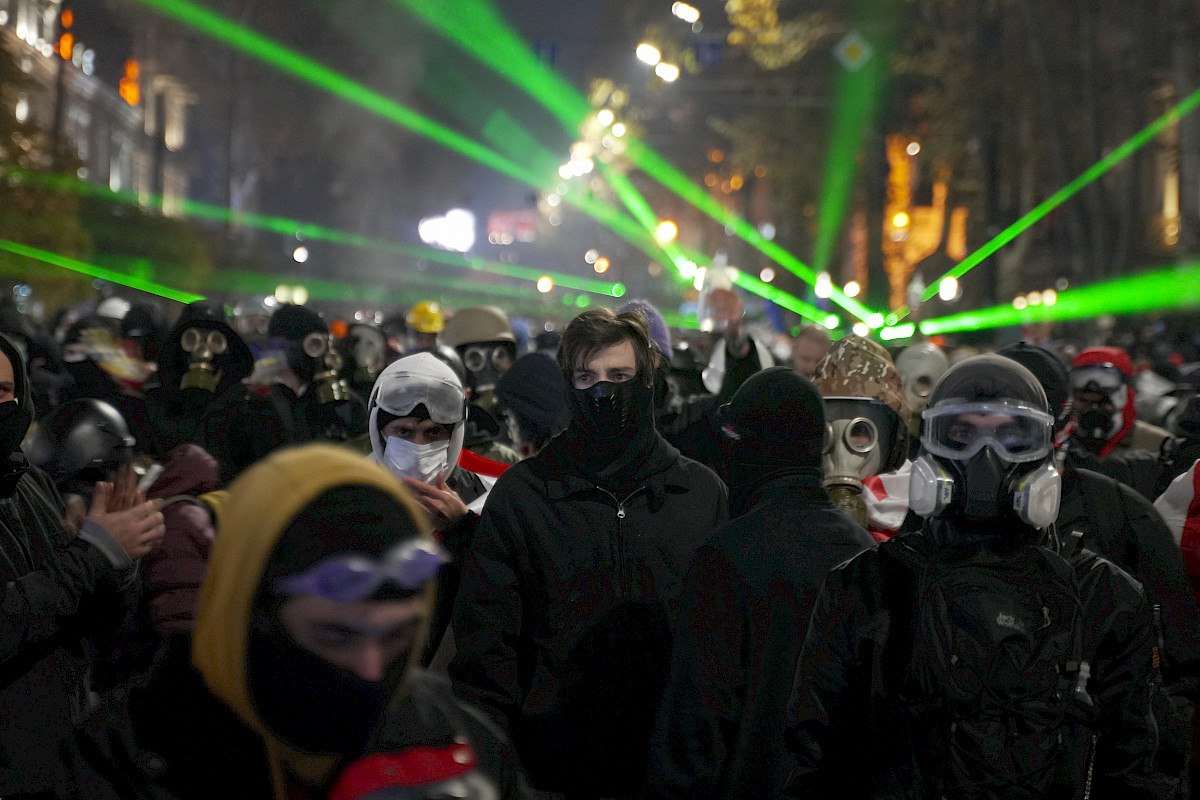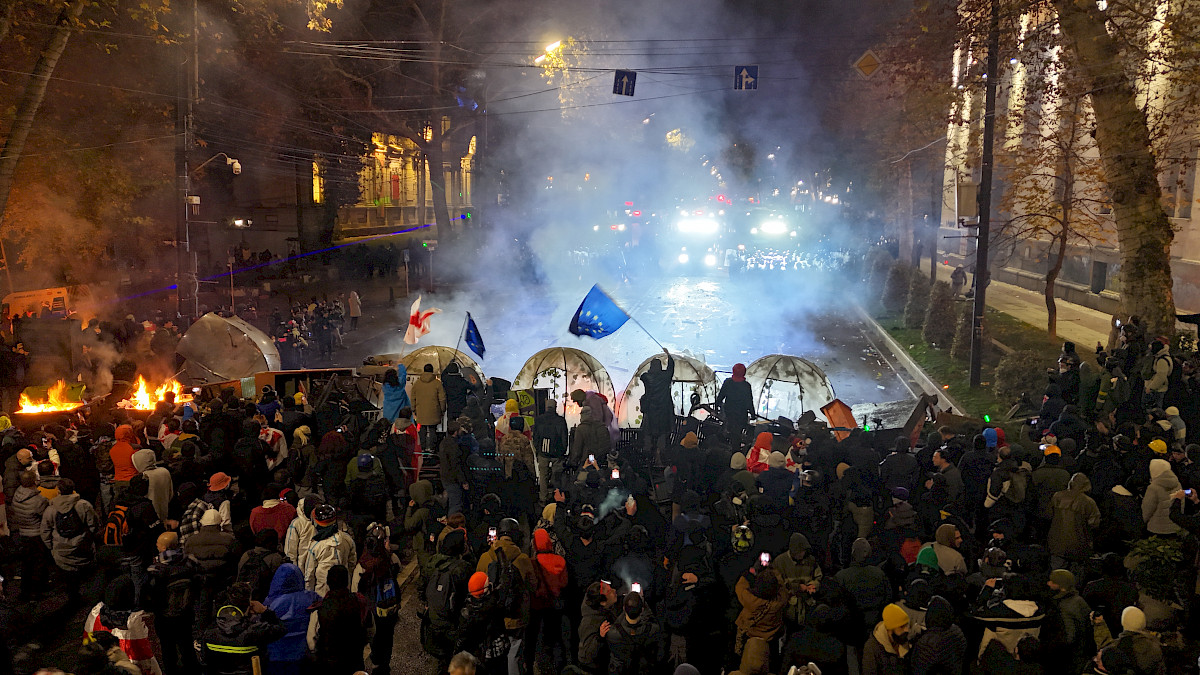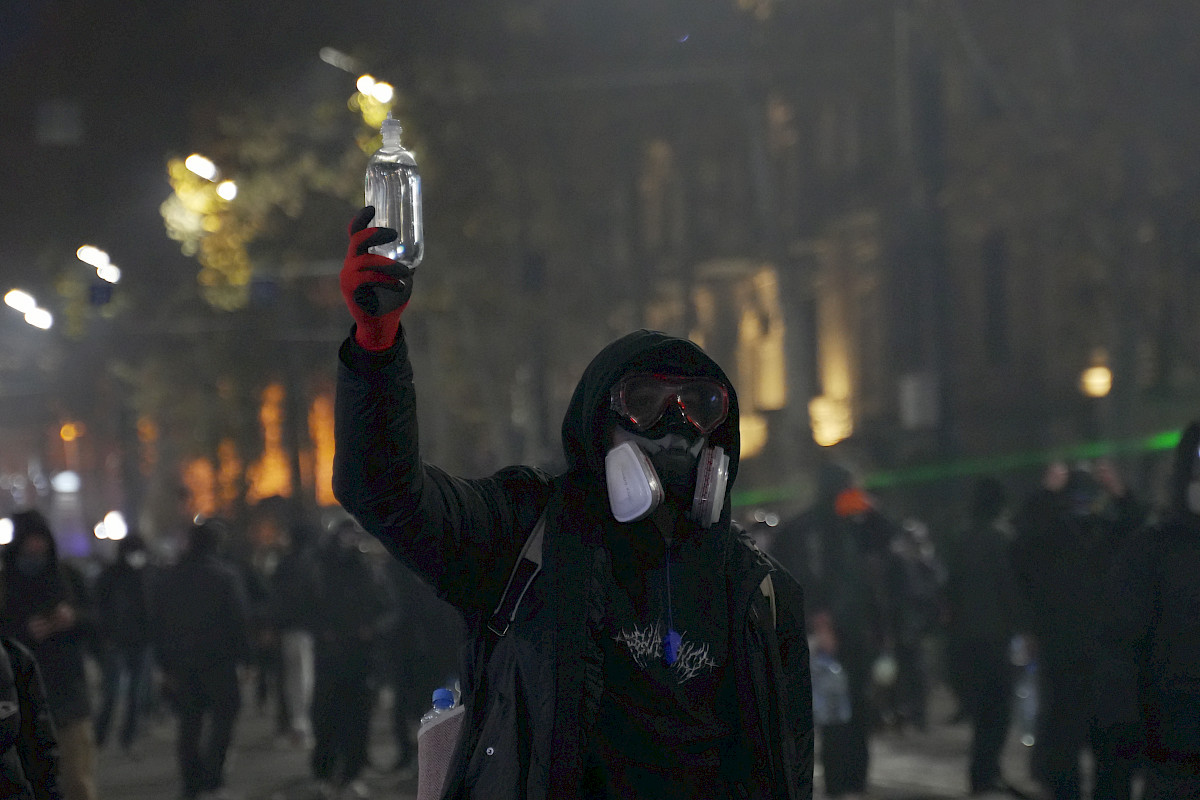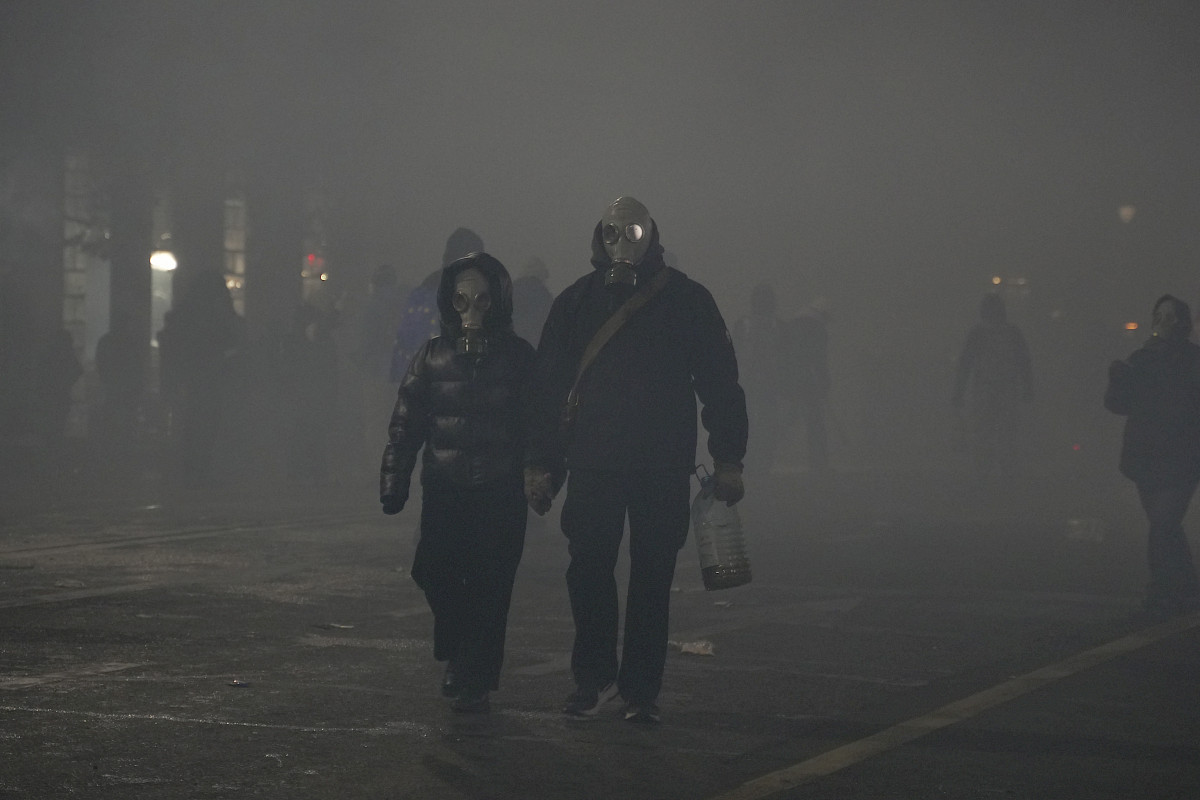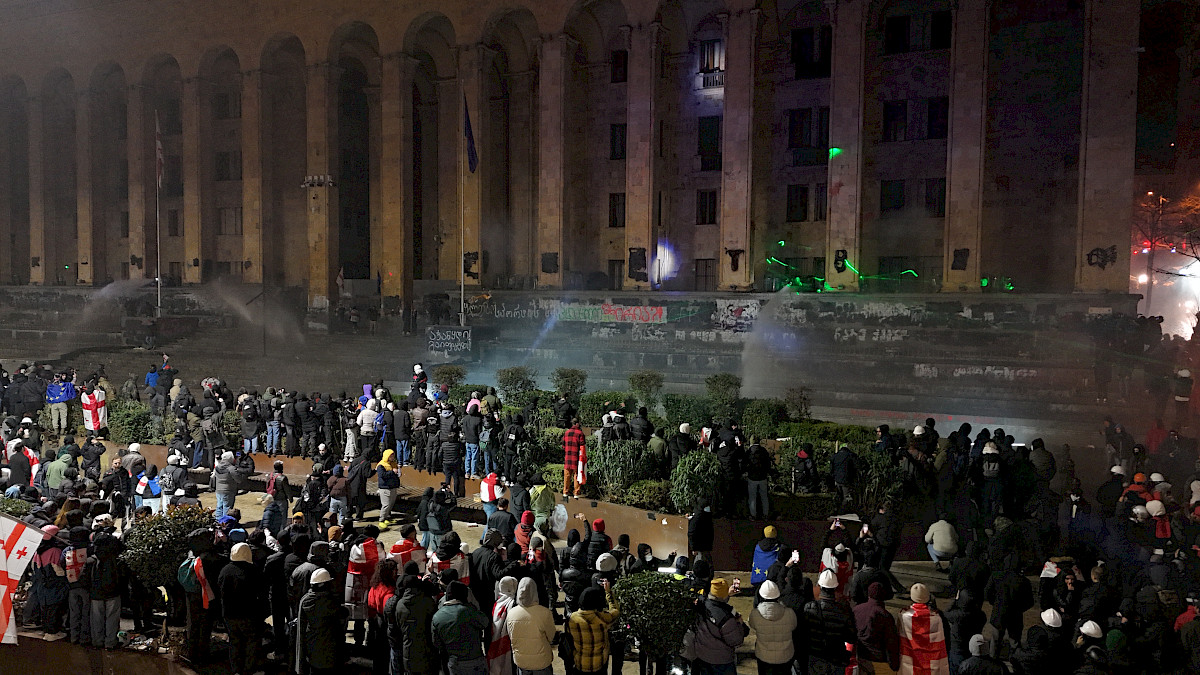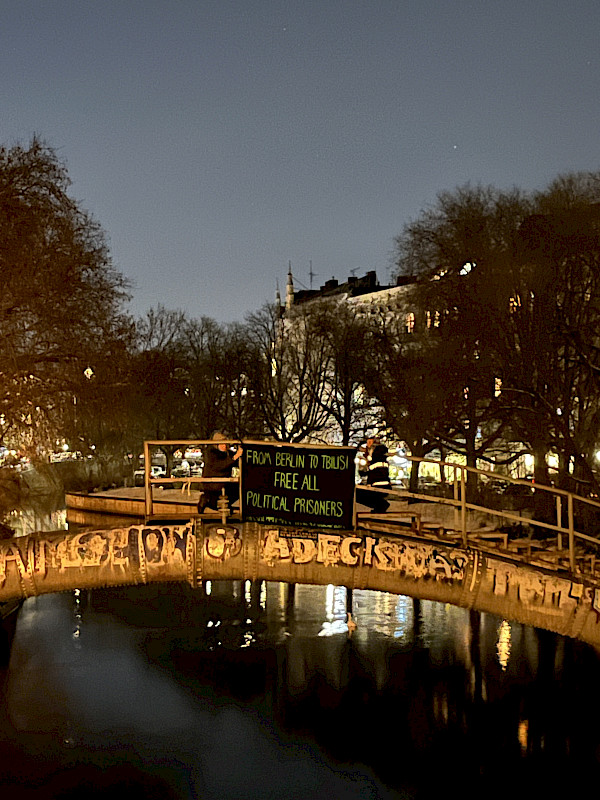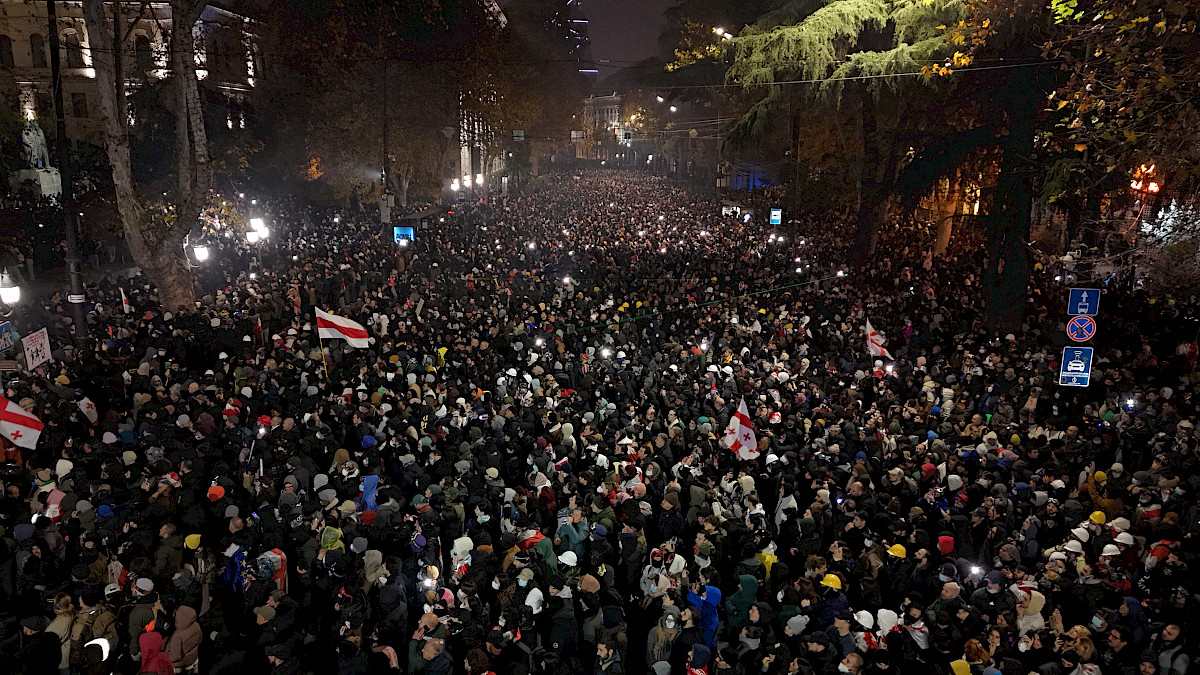
The political situation in Georgia has become a critical battleground in the global struggle against authoritarianism.
Over the past year, the ruling Georgian Dream party has intensified its attacks on civil liberties, further aligning with reactionary forces to suppress dissent and marginalize vulnerable communities. These actions, including the introduction of repressive laws targeting LGBTQ+ rights and civil society organizations, represent a direct threat to the aspirations of workers, activists, and marginalized groups fighting for equality and justice. At the same time, grassroots movements and progressive organizations in Georgia have demonstrated remarkable resilience, organizing mass demonstrations and building alliances to resist authoritarianism. This article seeks to provide a concise overview of the recent political developments in Georgia, to shed light on the different fronts of this struggle and explore ways the international community can offer meaningful support to the movements leading the charge in Georgia.
Timeline
March 2023
In March 2023, the Georgian Dream party, which has increasingly embraced neoliberal policies and aligned itself with pro-Russian forces, reintroduced the Foreign Agent Bill, aimed at labeling organizations receiving foreign funding as "foreign agents." The bill sought to impose registration requirements and force groups to disclose their financial sources, primarily targeting independent media, NGOs, and grassroots movements that opposed the government’s authoritarian and neoliberal agenda. By restricting the activities of those advocating for workers' rights, social justice, and democratic reforms, the law sought to silence dissent and protect the interests of the ruling elite. In response, thousands took the streets in mass protests, denouncing the bill as a direct assault on civil liberties. The collective resistance succeeded in forcing the Georgian Dream party government to revoke the law, marking a rare victory for civil society. However, this victory was only a temporary setback for the government, which continued its efforts to tighten its grip on power and further suppress democratic movements.
April 2024
In April of 2024, the “ Law on Transparency of Foreign Influence” was reintroduced and passed, despite the resistance of the Georgian civil society. Protests up until this day get crushed by riot police, individuals get chased and beaten. Despite president Salome Zurabishvili vetoings the “Russian Law”, the veto was revoked by the one-party Parliament. In September 2024, the Georgian Parliament enacted the "Law on Protection of Family Values and Minors," a piece of legislation that severely curtails LGBTQ+ rights in the country. Passed on September 17th 2024, with 84 votes in favor and none against amid an opposition boycott, the law explicitly bans same-sex marriages and adoption by same-sex couples, enshrining a heteronormative definition of family. It prohibits gender-affirming medical procedures, denying transgender individuals access to vital healthcare, and restricts legal gender recognition, preventing changes to gender markers on official documents. Additionally, it censors LGBTQ+ representation in media, erasing queer identities from public discourse, and suppresses public expressions of LGBTQ+ rights by banning Pride marches and related events, dismantling freedom of assembly and expression.
The murder of Kesaria Abramidze
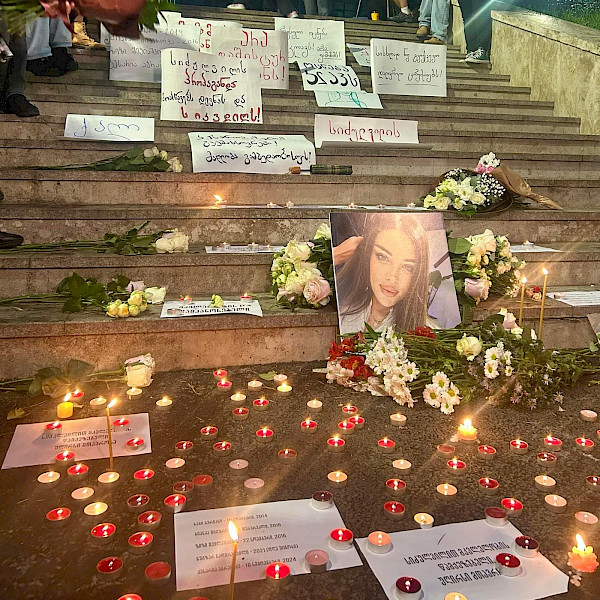
By institutionalizing systemic discrimination, it mirrors the authoritarian and homophobic policies of Russia, drawing Georgia closer to reactionary forces while abandoning its commitments to human rights. The tragic murder of Kesaria Abramidze, a prominent transgender model, the day after the law was passed exemplifies the climate of hate and violence it has emboldened. Moreover, the law's intentionally vague provisions open the door to wider crackdowns on media, education, and civil society, extending state control over all forms of dissent. This legislation does not only isolate and endanger LGBTQ+ individuals but also reveals a broader neoliberal and authoritarian agenda that sacrifices freedom and equality for political expediency and reactionary power. Its passage marks a devastating regression for Georgia, a betrayal of its democratic aspirations, and an urgent call for solidarity with those resisting this repression.
October 2024
In October 2024, Georgia faced its parliamentary elections, with Georgian Dream emerging as the winner on October 26th, securing a 54% majority. However, international observers raised serious concerns about the election’s integrity. A preliminary report from the Organisation for Security and Cooperation in Europe (OSCE)highlighted instances of voter intimidation, coercion, and pressure, particularly targeting public sector employees and other vulnerable groups. These actions cast doubt on whether many voters were able to cast their ballots freely and without fear of retribution. While the OSCE stopped short of claiming the elections were outright stolen or falsified, opposition groups strongly disagreed. A coalition of 2,000 election observers, known as My Vote, asserted that the preliminary results did not accurately reflect the will of the Georgian people, citing widespread voter fraud and violence as key factors undermining the legitimacy of the process.
"The results of the election sparked a new wave of protests. The opposition refuses to take their mandates, a one-party parliament is formed."
November 2024
On November 28, 2024, Prime Minister Irakli Kobakhidze announced that Georgia’s negotiations with the European Union would be suspended until 2028. This announcement effectively renounced the European path enshrined in the Georgian constitution, signaling a significant shift away from Georgia’s European aspirations and opening the door to increased Russian influence in the country. The decision was met with widespread condemnation from Western leaders, who criticized the Georgian Dream government for undermining the country's democratic progress and geopolitical alignment. In response to the government's actions, public and diplomatic service workers across Georgia resigned in protest, a powerful expression of dissent against the government's betrayal of the country's European future.
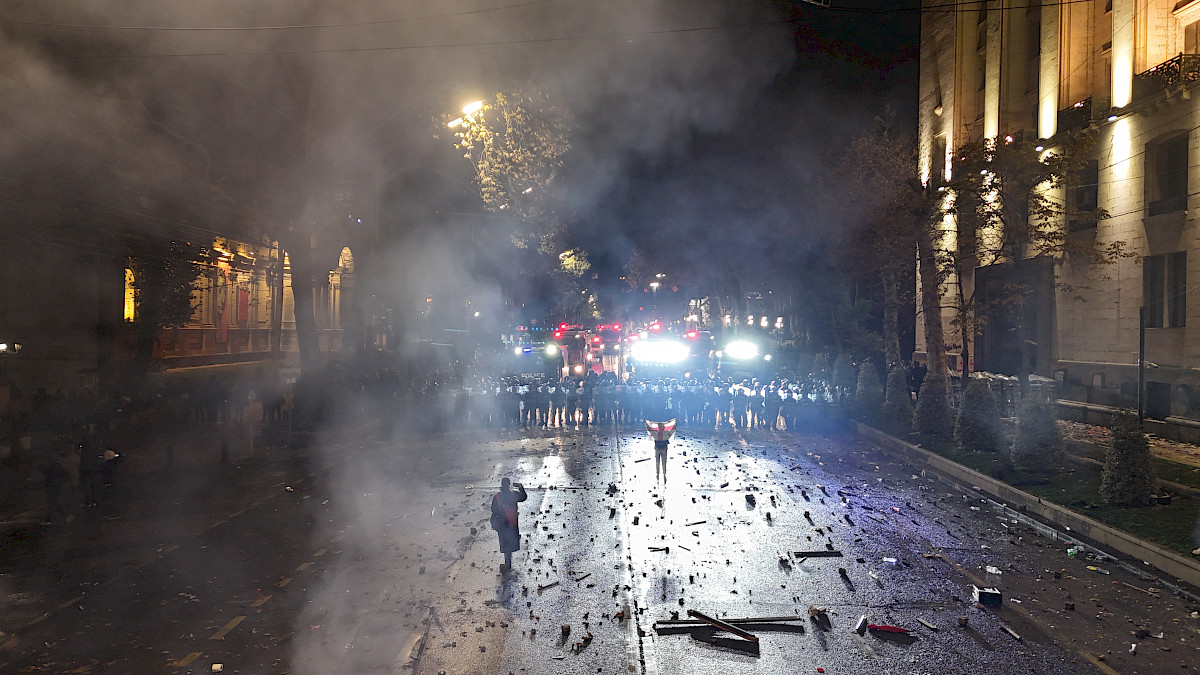
On November 28, 2024, massive protests erupted in Tbilisi and other major cities across Georgia in response to the government's decision to suspend EU negotiations. Tens of thousands of people took to the streets, marching to defend their freedom and demand the continuation of Georgia's European path. The protests, a powerful display of public outrage, were met with a brutal crackdown by riot police. Security forces used tear gas, water cannons, pepper spray, rubber bullets, and violently beat protesters, targeting individuals indiscriminately. The excessive use of force left many injured and further fueled public anger. These demonstrations underscored the resilience of the Georgian people in the face of escalating authoritarianism and the deepening crisis of democracy in the country.

